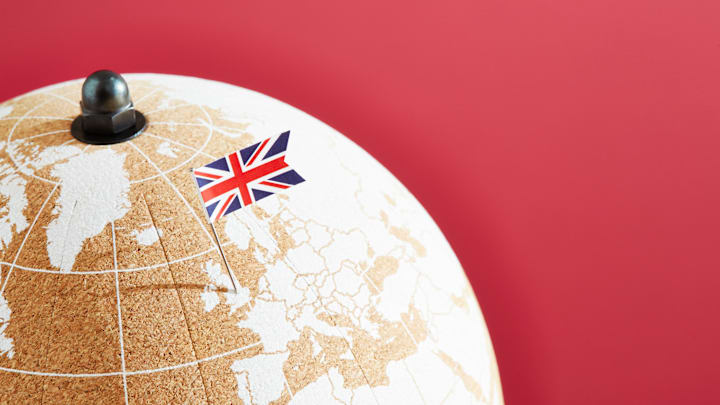In the U.S., it’s not uncommon for the terms English and British to be used interchangeably to describe anything involving the realm that gave us such gems as Pride and Prejudice, Paddington Bear, and Benedict Cumberbatch.
But English and British don’t mean the same thing—because England and Britain aren’t the same place.
To make a centuries-long story short, England is one of three countries located on the island of Great Britain, along with Wales and Scotland. The United Kingdom’s full title is the United Kingdom of Great Britain and Northern Ireland, which makes it pretty clear which nations fall under the UK umbrella: England, Wales, Scotland, and Northern Ireland. The rest of the island of Ireland is its own nation—the Republic of Ireland.
Because England is part of Great Britain, everything English is technically also British, but not everything British is also English. You shouldn’t, for example, refer to the Loch Ness Monster as an English cryptid. It (purportedly) lives in Scotland, so you can call it Scottish or British. In other words, only things from England are English; anything from England, Scotland, or Wales is British.
Ireland is slightly more complicated. If someone hails from the Republic of Ireland, they’re simply Irish. Northern Irish people qualify for both British and Irish citizenship, so they might consider themselves British as well as Irish. Plus, since the United Kingdom doesn’t have its own adjective, British can also be understood to mean “of the United Kingdom”—and Northern Ireland is of the United Kingdom (though that term isn’t always popular in Northern Ireland).
A version of this story ran in 2022; it has been updated for 2023.
Are you a logophile? Do you want to learn unusual words and old-timey slang to make conversation more interesting, or discover fascinating tidbits about the origins of everyday phrases? Then get our new book, The Curious Compendium of Wonderful Words: A Miscellany of Obscure Terms, Bizarre Phrases, & Surprising Etymologies, out now! You can pick up your copy on Amazon, Barnes & Noble, Books-A-Million, or Bookshop.org.
